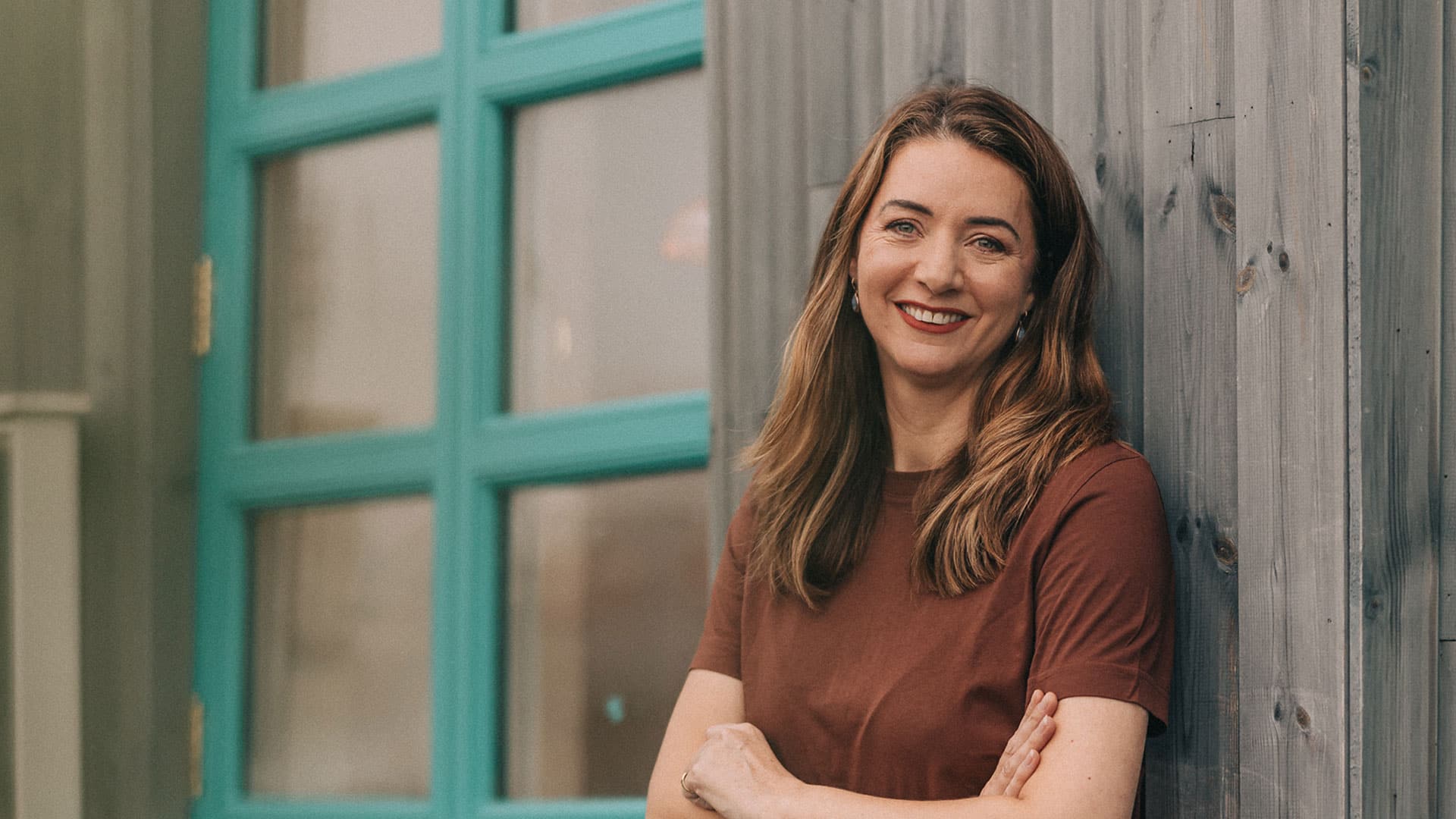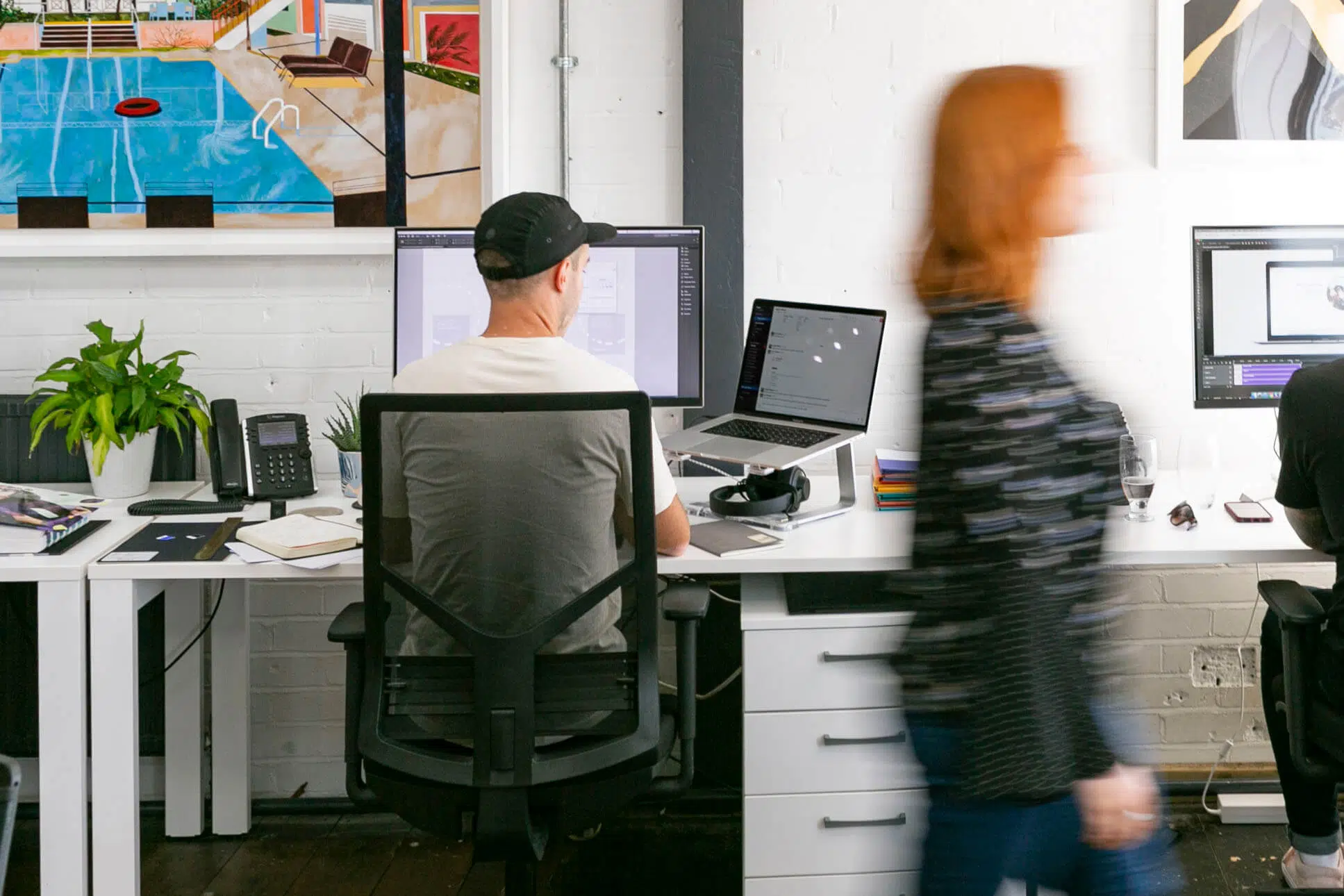Reflections on our 4 year anniversary of employee ownership
This month, we celebrate our fourth anniversary of being employee-owned, having transitioned to an Employee Owned Trust in 2021. In what has become a semi-regular annual tradition our MD, Bella, has been pondering the changes we've experienced and lessons learned along the way.

Let’s start with some of the best bits. During the last four years, we’ve enjoyed success on many fronts: financial performance, staff retention, client satisfaction and happiness, and lots of exceptional strategic, creative and digital work along the way. There is a lot to be proud of collectively. But what has it meant to me?
The unexpected rewards of employee ownership
When we first embarked on this employee ownership (EO) journey, I couldn’t have known how personally rewarding this chapter of Salad’s story would be. In fact, I’ve joked (only half in jest), “Why did I sell this company? I don’t want to leave!”. All in all it’s been a positive transformation and one that’s opened doors to a new community of EO businesses, and new opportunities we never knew existed.
One of the best outcomes has been a new level of alignment across the team. The model has fostered a sense of unity and common purpose that goes beyond anything we had before (and we did have a strong culture before). After 24 years, I still love this business deeply: the pride and investment that come from the team are fuel for my passion and commitment. It’s a lovely virtuous circle.
And as a leader, I genuinely feel that work has become a load shared, and I’ve found my job and the business easier to manage as a result. The open conversations about succession planning and future leadership have been particularly refreshing and are allowing us to plan for long-term sustainability.
But (of course!) there have also been some challenges
Over the course of the last year, a few early decisions have come back into sharper focus, particularly where they may have unintentionally reinforced a sense of “us and them.”
When we first transitioned, we were encouraged to set up an employee council. We knew we needed some way of collecting the employee voice, and, as we understood it, Andy & I couldn’t be part of it. But, thinking back, it created an uncomfortable tension. I struggled with feeling disconnected, and it became clear that we hadn’t defined the council’s remit in a way that empowered the voices in our business. After speaking to other EO businesses and hearing how they approached representation, we realised the model needed to evolve. Shifting from a fixed Council to a broader concept of Employee Voice, with a clearer remit to report to both our Operational and Trust boards, feels like a healthier, more open and (hopefully) more productive foundation. It’s early days, but the direction feels right.
The same theme showed up in our approach to beneficiary payments. Initially, we excluded ourselves, believing that as former shareholders we weren’t eligible. It was well-intentioned, but again, it drew an artificial line between “us” and “them.” After further reading and some helpful conversations with experts (thanks in particular to Steven Tebbutt) and our Trust Board, we realised this was, in fact, incorrect. We’ve since adjusted the policy to include all salaried employees, including ourselves, ensuring fairness without hierarchy.
Looking back, both decisions came from a desire to “do the right thing,” but they also reveal how easy it is to create tension if you’re not actively building trust and equity into the system. EO only works if everyone feels part of it, not just in principle, but in practice.
The power of the employee voice has prompted some changes
In the last year, we’ve implemented a number of changes as a result of listening to what’s important to the team. This has included introducing more flexibility by moving our daily all-agency morning meeting to accommodate those with school drop-off requirements, and we’ve also updated our contracts and policies to be clearer and make sure we’re up to date.
And although a few years off, we’ve started to think about the run up to, and what happens after we’ve become ‘financially free’. It’s an important and exciting conversation, and one I look forward to continuing over the coming year.
The human journey and the importance of “intentionality” in employee ownership
One aspect that’s become increasingly clear over the years is the human element of the EO journey. It’s not just about financial structures or business models. It’s about people. We’ve seen lots of personal growth in our team, and I’ve loved watching them embrace their roles as employee owners and become more invested in our collective success.
If there’s one lesson that continues to stand above all others, it’s the importance of being intentional in our approach to employee ownership. Success doesn’t happen by accident – it requires careful planning, open communication, and a willingness to address challenges head-on. We haven’t always got things right, but in adopting an open and two-way dialogue, and investing in activity to feed our employee-owned culture, I believe the trust is there that we can overcome hurdles and achieve great things as a team.
We continue to invest in quarterly Vision days in which we bring the team together, to ‘look up’, and collaboratively think about the bigger picture and where we’re going. The agenda is rolling, but we typically start by reviewing our 2028 goal with other topics based on our current priorities. An exercise we undertook this year was to workshop our company values. The session was filled with lightbulb moments, and what unfolded filled us with pride for the business we’re part of.
I’ve become an EO flag-waver
Since our transition to an EOT, I’ve become passionate about sharing our EOT experience with others; you might call me an “evangelist”, and I’m always up for discussing the benefits and challenges of this model with anyone who’s interested. I’ve had the pleasure of sharing our story both in one-to-one conversations and on podiums. I’ve also found it particularly enjoyable to speak to other former founders/owners who are, like me, still in post. It’s a unique position that not many share.
This newfound role has led to so many fascinating conversations and connections, enriching both Salad’s and my personal professional journey. It’s opened doors to new partnerships and collaborations within the EO community, further validating our decision to take this path.
Ultimately, I’ve come to realise that as our world is moving towards irreversible wealth inequality, employee ownership offers a genuine antidote to that. As the model grows in the UK and around the world, there is huge potential for both economic and social impact.
Looking ahead
We’ve seen many positive impacts in terms of culture and overall business health, and this continues to reinforce my belief in the employee-ownership model. However, as we move forward in our EO journey, whilst I’m certainly excited about the future, I’m also more cognisant than ever about the nuanced challenges that will emerge for us as the years roll on.
The good news is that we’re not alone. We’ve enjoyed building relationships with many other businesses in numerous sectors and stages of their EO journeys – from entry level to decades established – and I have no doubt this will continue. It gives me so much pleasure to feel useful in sharing our experience to help others, and we continue to benefit from those who are so generous in their sharing of experiences and information to help us.
The employee-owned sector is growing, and by the end of the year, there are predicted to be more than 3,000 EO businesses in the UK. And whilst our EO journey has not been without its challenges, the benefits have far outweighed the difficulties.
So, as we enter our fifth year of employee ownership and approach our 25th in business, my sleeves are firmly rolled up, ready to continue the work needed to see Salad thrive and to continually improve and adapt our EO model to serve our team, our clients, and our community better.
Charting our journey so far
You can read my reflections from year one here and year two here. I missed year 3, but we collectively wrote a piece here.
Ownership is more than just structure. From shaping vision to evolving culture, the most impactful businesses are those that lead with intention.
At Salad, we support employee-owned organisations to align their brand, culture and digital experiences with the values at their core.
Get in touch to find out how we can support your journey with intention.





